|
|
|
|
Canadians are clearly in one of two distinct camps this weekend: (a) those who live in the path of Monday’s total eclipse; (b) those who do not.
Group A folks are understandably excited – and maybe a bit nervous (in case it’s cloudy!) – about Monday. The opportunity to take in a total eclipse is something that most of us may, if we’re lucky, see once in our lifetime. I have experienced a couple of “partial” eclipses, which to be honest, weren’t much of an experience at all. And on Monday, I’ll be in Ottawa – close, but not completely in the path of the eclipse. But I’m fascinated about the hype, the history and the science behind eclipses.
For those of you in Group A, The Conversation has published an incredible number of stories over the last couple of weeks that cover all aspects of Monday’s eclipse. I’ve included a few of them below.
But how about those of you in Group B? Do you care? Are you tired of all the eclipsemania given it’s not something remotely close to you? Well, for your weekend reading pleasure, I’ve assembled a few of my favourite stories from across the global network of The Conversation – a great explainer on how Eastern Canada is susceptible to earth quakes (a day after a quake hit the New York City area); a look at Rwanda on the
30th anniversary of the genocide in that country; an interesting read about batteries and a take on the new Netflix movie about Prince Andrew’s problems.
Don’t forget to listen to the latest episodes of our podcasts – and test your knowledge with The Conversation news quiz.
Nehal El-Hadi, our Science + Technology Editor who has been co-ordinating our eclipse coverage, will be back in your Inbox on Monday with one final message about the big moment in the sky.
Have a great weekend,
|

|
Scott White
CEO | Editor-in-Chief
|
|
Weekend Reads: I'm excited about the eclipse!
|
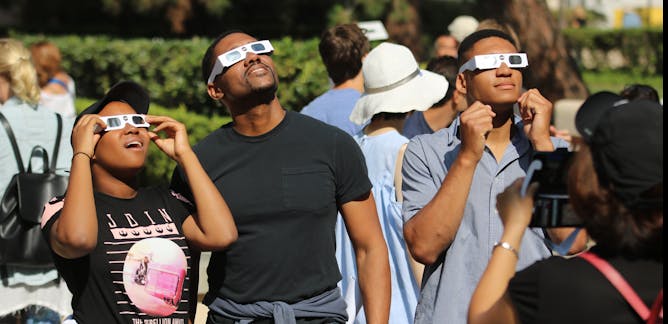
Robert Knobel, Queen's University, Ontario
A total solar eclipse is a beautiful phenomenon worth seeing, but worth seeing safely.
| |

Jack L. Rozdilsky, York University, Canada
A million people are anticipated to head to the Niagara Region to experience the total solar eclipse on April 8. Keeping large crowds of spectators safe may pose a challenge for the region.
|
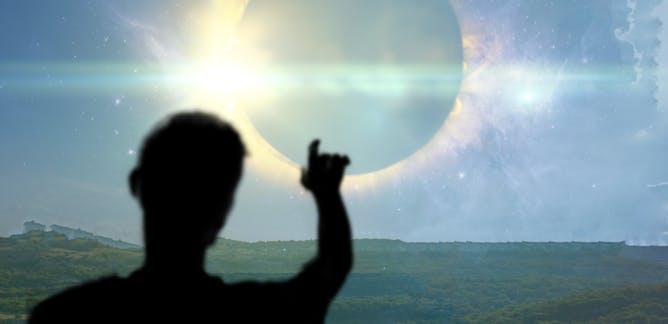
Nikhil Arora, Queen's University, Ontario; Mark Richardson, Queen's University, Ontario
Eclipses have inspired myths, predictions and scientific discoveries. The total solar eclipse occurring on April 8 provides a once-in-a-lifetime opportunity to engage with science and the cosmos.
| |
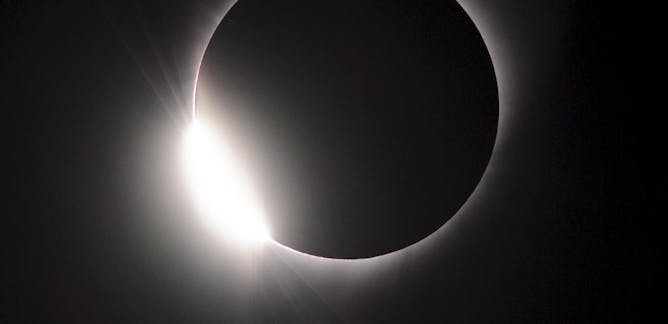
Sarah Sadavoy, Queen's University, Ontario
Mentions of total solar eclipses in ancient history help researchers pinpoint precise dates of notable events.
|
|
|
Weekend Reads: Enough about the eclipse already!
|

Jeremy Rimando, McMaster University; Alexander Lewis Peace, McMaster University
Some of the worst risks of earthquakes are in a zone running from the Great Lakes to the St. Lawrence River that includes major cities like Toronto, Ottawa and Québec City.
| |
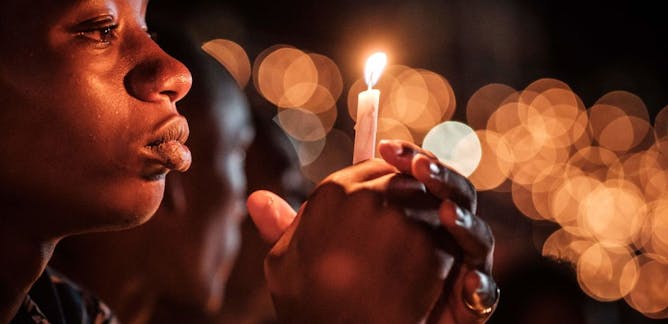
Jonathan Beloff, King's College London
Young people have little desire to bring up their parents’ divisions, but older Rwandans remain fearful of a resurgence of tensions.
|

Wesley Chang, Drexel University
The reason batteries come in so many types has as much to do with history as innovation.
| |
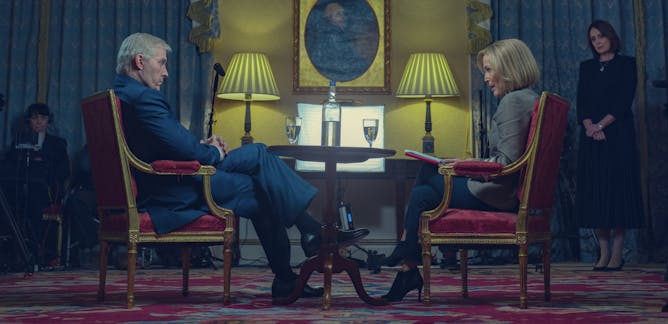
Sarah Lonsdale, City, University of London
An expert in journalists in fiction and film reviews Gillian Anderson’s portrayal of Emily Maitlis.
|
|
|
The Weekly News Quiz
|

Fritz Holznagel, The Conversation
Test your knowledge with a weekly quiz drawn from some of our favorite stories.
|
Weekend Listens
|

Vinita Srivastava, The Conversation; Ateqah Khaki, The Conversation
Beyoncé’s country-inspired album has caused a stir because the country music scene has a history of racial segregation that has erased its Black roots and gatekept it from Black artists.
|

Gemma Ware, The Conversation
Scientists Jan Zalasiewica and Erle Ellis on the recent decision to reject a proposal for a new geological epoch, the Anthropocene. Listen to The Conversation Weekly podcast.
|
|
|
| |
| |
| |

|
| |
| |
| |
| |
| |
| |
|
|
|
|
|
|
|